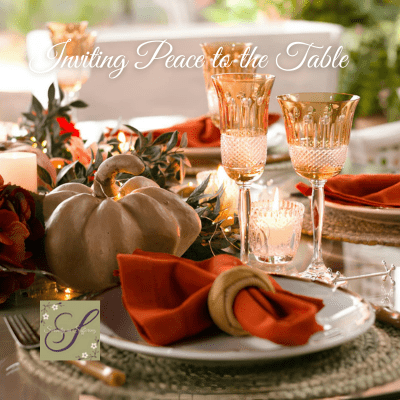Finding Balance: The Art of Rest in Busy Lives
By Elizabeth Prata
SYNOPSIS
The post discusses the need for rest as life seasons change, acknowledging shifting energy levels from youth to adulthood. I emphasize the importance of balancing rest with productivity, advocating for discipline in scheduling downtime. I encourage intentional rest practices, grounded in faith, to avoid burnout and maintain spiritual connection with God.
Back in the olden days when I was a teenager, we used to go outside, play all day, and bicycle all over town, returning home when the streetlights came on.
I remember riding my ten speed up hills, looking at my legs, and noting they were like pistons that never wore out or got tired. They just pumped up and down, and onward I rolled.

Those days are long gone now that it’s half a century later. My energy levels are spotty to say the least. Now I marvel at the fact that one day I’m full of energy and the next I’m exhausted, even though I did the same things. I guess as we move through seasons of life we have to do some internal inventory and make adjustments. My legs are no longer like pistons!
For me, I know that after a full day of packed work hours, when I arrive home I am mentally drained. I used to write the blogs after school and into the night. I can’t do that any more. When I get home, I’m numb. I mostly drink tea and watch cat rescue videos when I’m not doing minor chores. My best physical and mental energy times are on Saturdays, school breaks, and summer. That’s when I do my research, writing, and heavy theological reading.
As we move to a different season of life and we find we need to rest, it brings up the question, how do we enjoy a godly rest without sliding into laziness? Or worse, listlessness? I’ve had this question asked of me by women who are going through child-rearing seasons, and women who are moving from their energetic 20s to their more mature 30s, as well as myself, moving into retirement-from-work season.
When we rest, I know sometimes we feel guilty. What about redeeming the time for God? Being productive for the Kingdom? Advancing our sanctification through holy pursuits? We want to wring out every second for His glory. But neglecting our bodies and minds in necessary refreshment is a danger, as is the other side of the coin- a tendency to allow ourselves to become lazy. Too busy? Not good. Not busy enough? Not good. Where does the rest come in?

It might seem like an oxymoron, but we need to work at resting.
The first mention of rest came early in the Bible, the Lord rested on the 7th day. He was not tired, because His power never diminishes. He was showing us a model. He ceased from His labors. He didn’t need physical rest (like we do) but showed us that a cessation of labor was both to worship and to actually rest. The model was to show us that Jesus (when He came) woould be our permanent rest, our cessation from the labor of trying to keep sin at bay by keeping the Law. We often focus on the day of worship part of the Sabbath to the exclusion of the day of rest. But both matter.
Psalm 37:7 as well as other Psalms says to rest in the Lord and wait patiently for Him. It doesn’t mean to nap. This kind of rest is a trusting obedience, a peaceful state of the heart.
So, back to the question, how can we trust ourselves to rest appropriately without sliding into laziness. Answer: You work at it. And discipline.

1.The danger of burnout. It’s a danger, particularly for those folks who love to be busy. In addition to home adn/or work duties, we join volunteer committees at church, do VBS, teach a home Bible study group to women, and more. But there is a possibility of burnout, as well as the danger of becoming a law-keeping Pharisee who swaps diligence for the Lord into an external merit-keeping inventory. We also get less productive the busier we are. So rest before you burn out.
This means paying attention to the change of your season and adjusting your volunteer schedule, your social schedule, and your personal schedule accordingly.
John Piper said he used to take all of Thursdays off for years and years. Eventually he switched his day off to Mondays. It is OK to change your schedule as time passes and make adjustments to it. As a busy pastor you might be surprised that Piper took an entire day off, but it’s important not to burn out. He said one thing he does for self-care is he doesn’t set the alarm on his day off so his body can reclaim the amount of sleep it needs.
For me, I’ve had to cease socializing on Saturdays because I need that day to refresh after a hectic work week and a worshipful and fellowshipping Sunday. I feel terribly guilty about it because this is the day most often there is a Ladies gathering or a baby shower. But I’ve noticed if I do Saturday I am wiped out for Sunday, usually with exhaustion or a migraine, and I miss church. And church is the higher priority, so…I have adjusted to this new season.
2.The discipline comes in to resist all the temptations when you have chosen a period of rest. It could be 10 minutes or a whole day, but no matter how long the time, be disciplined to actually rest during it. Your version of rest could be a walk while enjoying the sights and smells of the outdoors and silently praising God along the way. It could be a few minutes of reading a good book and sipping a favorite beverage. It could be a drive along a lovely lane while listening to classical music. It could be a catnap. Whatever you choose as your method of relaxation, rest in it. Do not interrupt it for anything (if you can help it, I know babies cry…:)

2a.Discipline your rest by making an appointment with it – and keep the appointment. Most of us have very busy lives and taking time for ourselves to relax often goes by the wayside. Emergencies happen, but most days we can take ten minutes or an hour or whatever to indulge in a restful activity. We can read a few pages of the book, do a bit of the puzzle, play a song on our piano, sit on the back porch for a few minutes. Even sitting in the car as you arrive home and enjoying the silence for a few minutes before entering the house can be your rest.
Whatever it is, carve it out and stick to it. That way your mind knows there is a release coming and you can anticipate it rather then stress about all you have to do. John Piper said on his day off after he gets up and after he reads his Bible for pleasure while sipping tea, he and his wife go out at noon. He made an appointment with himself and his marriage, carved out that time with his wife, and he sticks to it.
4.Pray. We often neglect the ministry of the Holy Spirit. He indwells us and helps us in all things. Pray to Him for rest, for guidance on resting legitimately and to alert us if we are sliding into laziness or neglecting other things; i.e. ask Him for balance.
I tend to want to have everything done before I sit down. I get antsy if I think I still have tasks to do. As busy moms, or working moms, or busy singles, you know that the tasks are never really done. So, keeping to the mindset ‘I’ll relax for a few minutes when I’m done” won’t happen because things never really get done! So let go of the guilt and take five, or ten. Do a few cross-stitches, another couple rows on the scarf you’re knitting, watch the leaves drift down, or the snow, and just be. The relaxing when I get done will burn you out. Planned rest, won’t.
You won’t get lazy if God is your priority. Keeping Him foremost in Bible reading, prayer, and church worship is an anchor point. Being disciplined about the daily check-ins with God through catechisms with the kids, or mealtime devotionals, or nighttime journaling is a second way to ensure you won’t get lazy. The laziness comes when the connection with God gets slim. Don’t let it happen.






